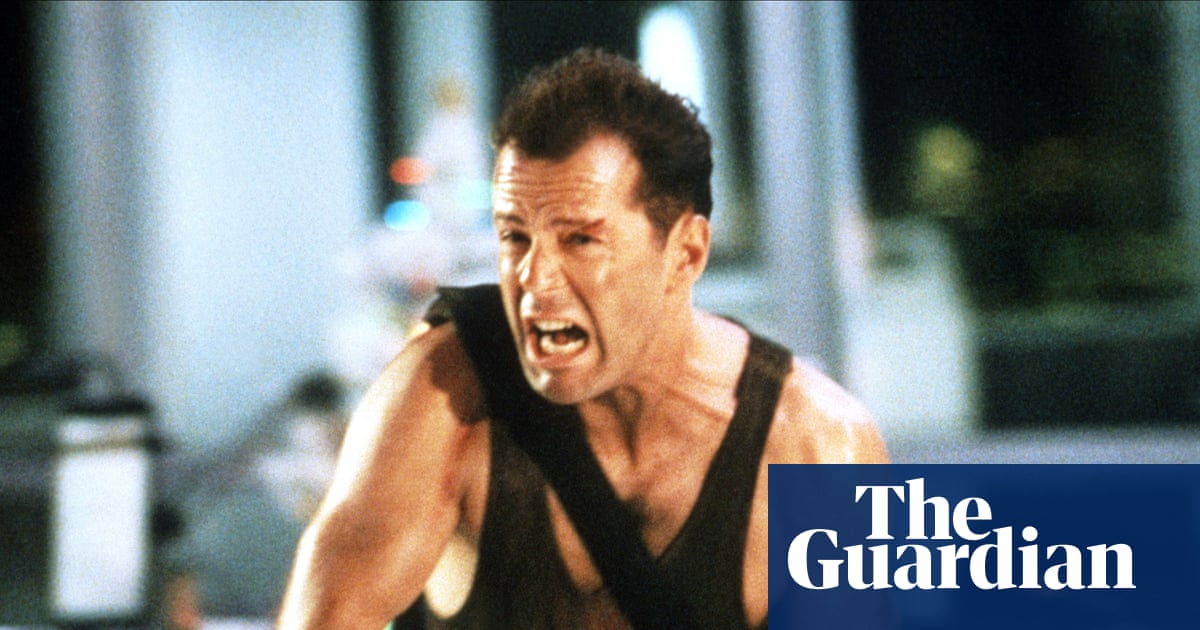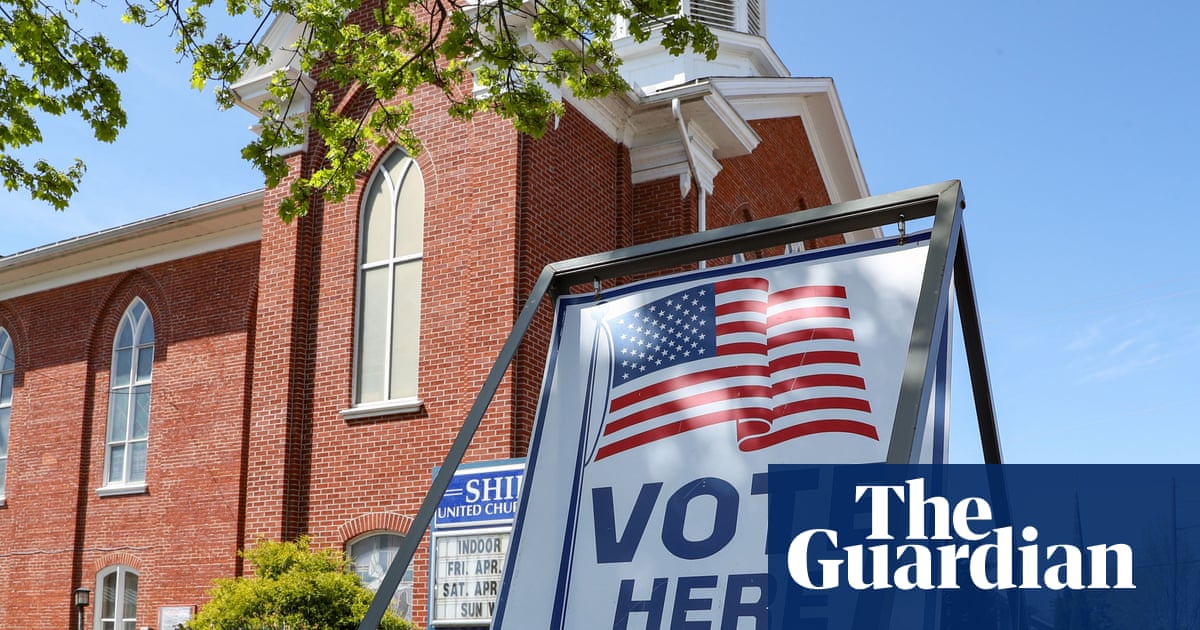Maybe it is the gruesome suddenness of his death that has made so many people forget the realities of Charlie Kirk’s life. After the 31-year-old rightwing influencer was shot dead at a college campus appearance in Utah on Wednesday, many commentators rushed to condemn political violence, on the one hand, and to issue warm tributes to Kirk’s life, on the other. The former of these is legitimate: that political policy should not be determined by force, or political disagreements settled through homicidal violence, is a baseline precondition of not just a democratic form of government, but of any functional society. The latter, perhaps, can be explained by the admirable human impulse towards gentleness and reconciliation. The horror and shock of Kirk’s assassination prompted some to offer their generosity, and their sympathy, to the dead man.
Perhaps it was these noble gestures toward generosity and sympathy that led some commentators to be more laudatory to Kirk’s memory than an honest recounting of his life would allow. In the days following Kirk’s death, several bewilderingly inaccurate postmortem hagiographies have appeared, including from prominent voices on the left and center, that seem to wish that the tragedy of Kirk’s death could retroactively have given him a more honorable life.
The most egregious of these came from Ezra Klein, a center-left columnist at the New York Times known for his ability to channel and influence elite opinion. In a piece published the morning after Kirk’s death, titled Charlie Kirk Was Practicing Politics the Right Way, Klein made a series of strained, bizarre and outright untrue assertions about Kirk’s career and character. Kirk, Klein argued, was, if anything, an example of civic virtue. “Kirk was practicing politics in exactly the right way,” Klein said. “He was showing up to campuses and talking with anyone who would talk to him. He was one of the era’s most effective practitioners of persuasion.” Klein’s point was that political persuasion – the rational debate of ideas between equals in which violence is unthinkable and good faith is presumed – is a cornerstone of liberal democracy, the kind of thing we should all be striving for, the kind of thing we need more of. “American politics has sides,” Klein continued. “There is no use pretending it doesn’t. But both sides are meant to be on the same side of a larger project – we are all, or most of us, anyway, trying to maintain the viability of the American experiment.”
Fair enough, I suppose, on its merits, but such a description of reasoned, honest, good-faith debate is so inaccurate a description of what Charlie Kirk engaged in on college campuses – in his series of large, staged events where he “debated” untrained liberal undergraduates with cameras rolling – that it reads as willfully naive, if not outright dishonest. Charlie Kirk’s “debates” were aggressive, unequal, trolling affairs, in which he sought to provoke his interlocutors to distress, shouted them down and belittled them, spewed hateful rhetoric about queer and trans people, women, Black people, immigrants and Muslims, and selectively edited the ensuing footage to create maximally viral content in which his fans could witness him humiliating the liberals and leftists they perceived to be their enemies. This was not “debate”; it was not reasoned, good-faith discourse; it was not the kind of fair deliberation that democracy relies on. It was a mockery of those things.
If reasoned debate is a precondition of a liberal democracy, there are other preconditions as well. A state cannot be called democratic if it does not offer equal protection of the law – if not all of its citizens are awarded the same dignity by their government and the same vote, same rights of expression and same prerogatives before courts and elected officials in their attempts to influence its policies and navigate its laws. Civic equality – not just civil engagement – is central to the American experiment, too. It is not to excuse his murder to be honest that Kirk opposed that equality. Some historians and political scientists have argued that the United States did not become a democracy until the passage of the 1964 Civil Rights Act and the 1965 Voting Rights Act, the laws that intended to end de jure segregation and racist voter suppression. But Kirk opposed the Civil Rights Act, calling it a “huge mistake”. He endorsed the racist so-called “great replacement theory”, in which nefarious actors (usually cast as Jewish people) are seeking to “replace” America’s white population with immigrants, saying it was “well under way every day at our southern border”. On his podcast, he hosted a “slavery apologist” and a man who said that after women “got, you know, the right to vote – after that, it all went downhill”. Kirk himself once said that Black women – he named Joy Reid, Michelle Obama, Sheila Jackson Lee and Ketanji Brown Jackson – “do not have the brain power to be taken seriously”. He condemned Democrats for supposedly wanting to make the US “less white”, and claimed: “There is no separation of church and state. It’s a fabrication, it’s a fiction, it’s not in the constitution.” (It is.) And yet Ezra Klein praised Kirk’s “moxie”. One wonders what such a euphemism is meant to obscure.
In the rush to canonize Kirk and revise his history, honest accountings of his life have not only become rare – they have also become dangerous. In the days since his death, journalists, media personalities and others who have not been sufficiently laudatory to Kirk in public have lost their jobs for telling the truth about his life. Matthew Dowd, a Republican political consultant, was fired from MSNBC after saying that Kirk had spoken “hateful words”. In Phoenix, a sports writer was fired for criticizing euphemistic accounts of Kirk’s beliefs. “‘Political differences’ are not the same thing as spewing hateful rhetoric on a daily basis,” he wrote in a social media post. Many of those eulogizing Kirk want to paint him as a champion of free speech, as a man who peddled in honest inquiry, uninhibited expression and the open exchange of ideas. This is a laughably inaccurate picture of the man’s work; it is in these punishments of those who oppose him that we can see a truer reflection of Kirk’s values.
I do not find it hard to condemn political violence. To me, to say that Kirk should not have been murdered is the easiest thing in the world. No one should be shot, be they rightwing influencers, or schoolchildren, or grocery shoppers, or churchgoers. It is easy for me, even, to show sympathy for the humanity of Charlie Kirk, who, for everything else he was, was a human being who has now been robbed of the opportunity to learn, grow, and repent. But such commitments – to human life, to nonviolence, to a faith in the possibility of redemption and reconciliation – need not lead us to lie to ourselves about Charlie Kirk. The same values that make us horrified at his violent death are the ones that should embolden our commitment to defeating the politics he worked for in life.
-
Moira Donegan is a Guardian US columnist

 2 months ago
38
2 months ago
38

















































